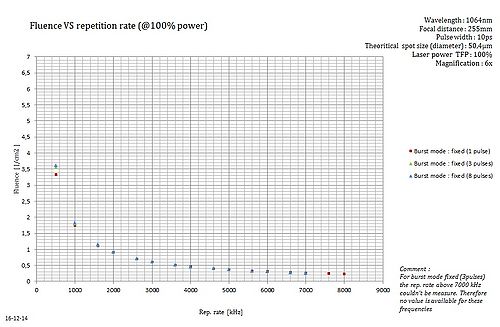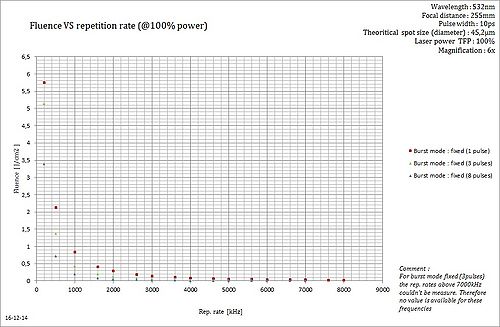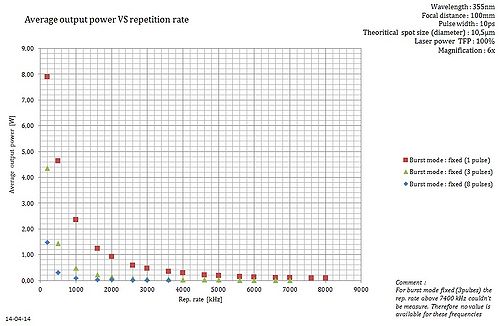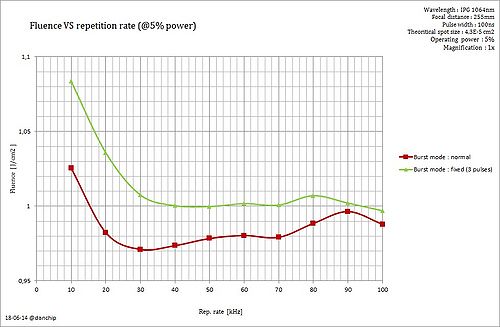Specific Process Knowledge/Back-end processing/Laser Micromachining Tool/fluence: Difference between revisions
Appearance
| Line 21: | Line 21: | ||
{| border="1" cellspacing="2" cellpadding="2" | {| border="1" cellspacing="2" cellpadding="2" | ||
![[image: | ![[image:161214_FluenceVSrepRate_1064nm_255mm.jpg|500x500px|thumb|center|Fluence result for IR wavelength (1064nm, F255mm)]] | ||
![[image: | ![[image:161214_FluenceVSrepRate_532nm_255mm.jpg|500x500px|thumb|center|Fluence result for green wavelength (532nm, F255mm)]] | ||
![[image: | ![[image:161214_FluenceVSrepRate_355nm_103mm.jpg|500x500px|thumb|center|Fluence result for UV wavelength (355nm, F100mm)]] | ||
|} | |} | ||
{| border="1" cellspacing="2" cellpadding="2" | {| border="1" cellspacing="2" cellpadding="2" | ||
Revision as of 14:42, 19 December 2014
Fluence definition
The fluence produces by a laser is, by definition, the energy delivered by a laser pulse () per surface unit () and it is given in J/cm2.
The function is defined as :
Where (average power) is measured with the laser sensor power measurement (see manual,section 5.3) and the repetion rate () is set in the parameter file under " laser frequency".
The fluence is therefore determinated as such :
The area () can be determinate with the theoretical min spot diameter (1/e2), available here
Fluence results measurement
 |
 |
 |
|---|
 |
|---|
